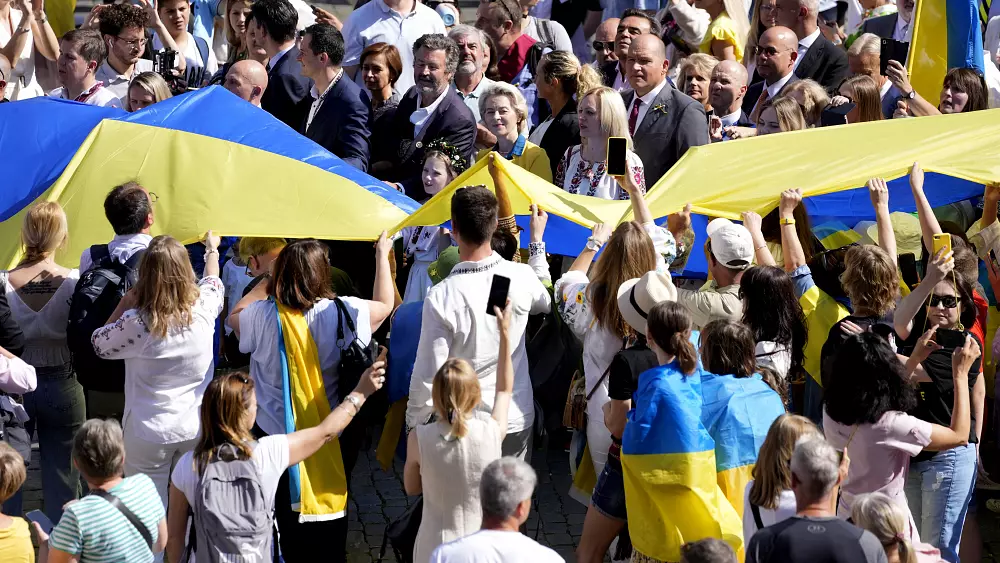General News
Europe’s week: Brussels marks Ukraine independence day and Dutch ask for sanctions exemption

Regardless of the European quarter in Brussels steadily coming again to life after a much-needed summer season break, the week was a gradual one in comparison with earlier ones.
On folks’s minds although have been Europe’s worst drought for 500 years, rising inflation, a weakening euro, and a warfare in Ukraine for ever and ever.
However the EU establishments did pull out all of the stops this Wednesday to mark Ukraine’s Independence Day, which coincidentally fell on the identical day because the six-month mark of Russia’s invasion of Ukraine.
To make it clear whose aspect she was on, European Fee president Ursula von der Leyen joined the Ukrainian group for the event within the metropolis centre of the Belgian capital.
A large flag was unveiled and a day of festivities adopted.
The temper was optimistic as conveyed by von der Leyen throughout a recorded message about the way forward for the war-torn nation.
“Along with you we’ll rebuild your cities, brick by brick and replant your gardens and fields seed by seed. Due to your sacrifices, your youngsters will develop up in a Ukraine that’s simply and free,” the Fee president mentioned on Wednesday.
However this actuality continues to be far-off and what EU capitals are processing proper now could be that this warfare will probably be a long-term affair.
In response to Bruno Lété from the German Marshall Fund, the longer term for European-Russia relations, for now, is bleak.
“Whether or not we prefer it or not, Russia is a geographic neighbour. This isn’t one thing you possibly can change,” he instructed Euronews. “And so the query is: what sort of structure do we have to give you that may assure peace within the coming years? That is the issue proper now as a result of Russia and Europe can’t discuss to one another.
“Their aims and views on European safety are essentially totally different. So, this elementary distinction between Moscow and European member states, I’m afraid, is an ingredient for extended rigidity and insecurity on the European continent.”
Dutch sanctions reduction
The town of the Hague within the Netherlands mentioned this week that it’s going to apply for a short lived waiver of EU sanctions in opposition to Russia to proceed receiving gasoline from Gazprom because it struggles to search out another provider.
In a letter to the town council, alderman Saskia Bruines wrote {that a} European tender in June and July to safe gasoline from various suppliers has did not get any bids.
European governments and public our bodies are required by the bloc’s fifth package deal of sanctions in opposition to Russia over its full-scale invasion of neighbouring Ukraine to finish current contracts with Russian corporations by 10 October on the newest.
“Restricted exceptions could also be granted by the competent authorities the place there isn’t any viable various,” the European Fee mentioned on the time.
That is what the Netherlands’ third-biggest metropolis, which has a pre-existing contract with Gazprom, now intends to do.
Bruines wrote that the town is now in negotiations with a variety of potential suppliers for a contract that might begin on 1 January 2023, and that as such “we’ll ask for an exemption for our present association till Jan. 1 2023 to ensure the protection of provide and to facilitate negotiations.”
She opined that the waiver “will (probably) be granted because the situation for this has been met, specifically a well timed tender process for a brand new gasoline contract.”
She warned nevertheless that the brand new contract “will result in (considerably) greater prices for pure gasoline” and that “with the present risky market, it isn’t but attainable to make a concrete assertion on the extent of the rise.”
























